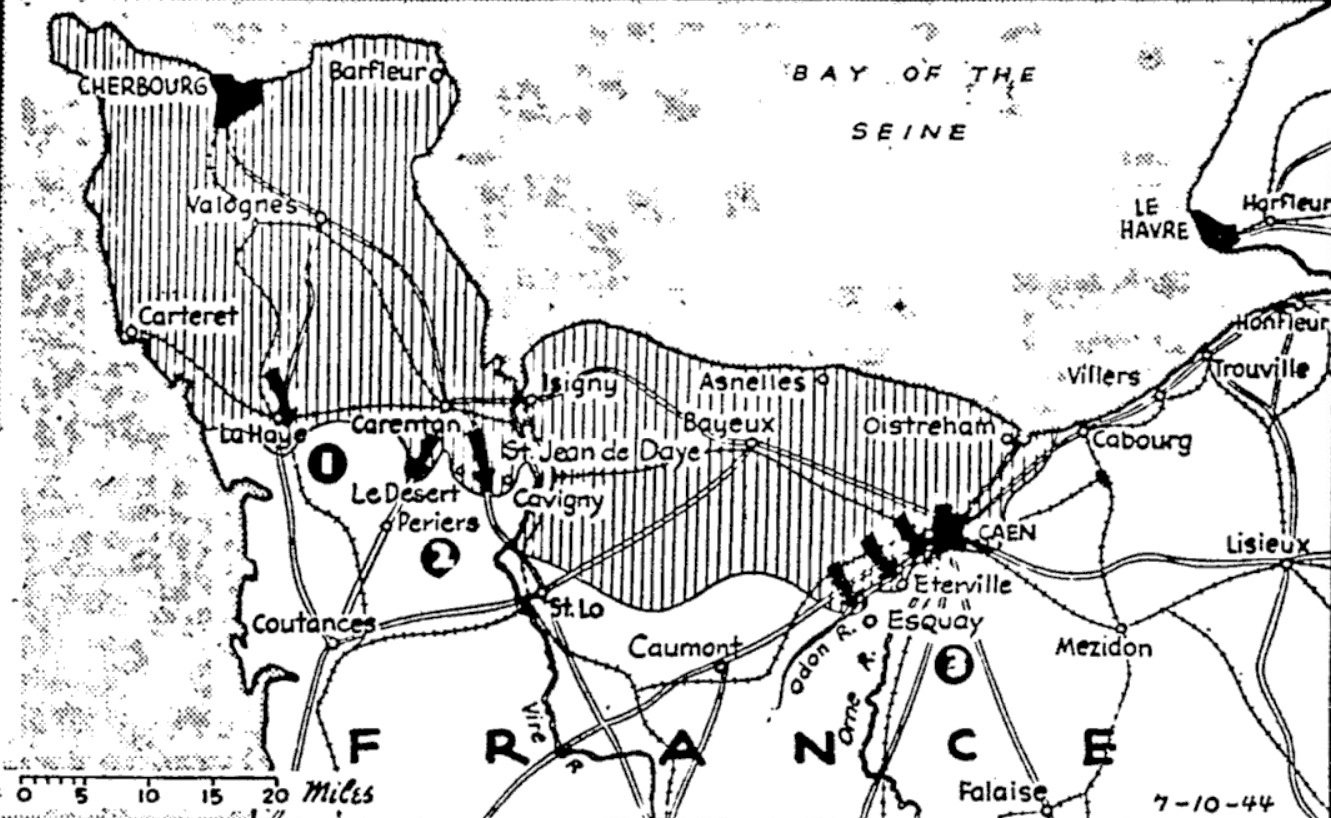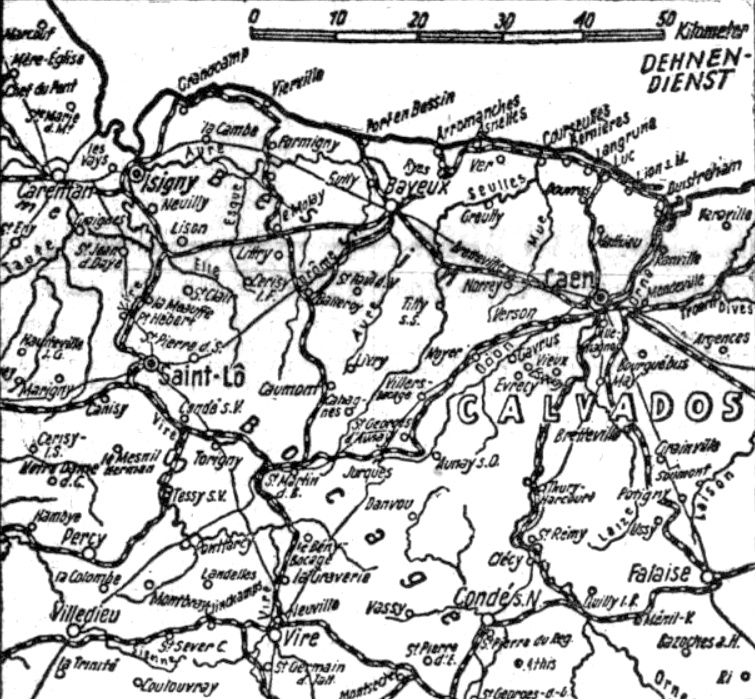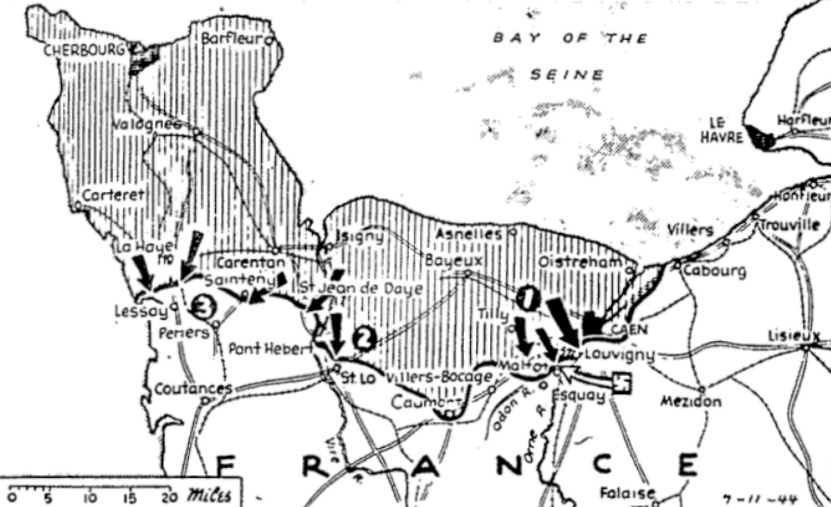MacGowan: Few Norman girls found married to Nazi soldiers
Majority of French women await return of countrymen; others ostracized
By Gault MacGowan, North American Newspaper Alliance
Colombières, Normandy, France – (July 8)
The name of this place means dovecots in English, and the little church of the village has a popular matrimonial altar. But you will search in vain for records of weddings between Nazi soldiers and French girls.
An aged parish priest told me today:
We have had no weddings of that kind here or in any of our parishes. Civil weddings may have taken place, but I haven’t heard of any. There were some clandestine liaisons, of course, but none solemnized by the church. No self-respecting girl would have anything to do with the Germans.
I have been checking up on reports of French girls’ retreating with the Germans and on the invasion-day stories of French girls as snipers and roof-spotters, and have learned that those who became such collaborationists were few indeed. The priest’s story of Colombières is true, I feel sure, for most communities in Normandy. Tradition is strong in this region, and family life is even stronger. There is no sympathy for the scarlet woman.
Spoke to ‘pink sister’
I spoke to one pink sister today, discovering her hue only after I asked her opinion of why the Germans did not invade England in 1940 and she flashed back so aptly with her reply.
“Why should they?” she said. “They had everything they wanted here – wine, women and the best of cooking.”
In justice to French women in general, I should make clear that I have asked the same question of many others, and they have given me quite different answers.
It must be admitted that there has been a definite psychological problem involved with the occupation army. Young Frenchwomen, with their own young men far from them and only old men or comparative weaklings to choose from, could not keep from glancing occasionally at healthy, young German soldiers, looking very difference from the caricatures of them circulated before the fall of France. Not all were the strictly Nazi types. Large numbers of Saxons, Bavarians and Austrians. Some had been educated at the Sorbonne or in England or America. They spoke French well and their manners were cosmopolitan.
Germans frowned on unions
These more attractive ones were pushed forward in the early campaign to implant Hitler’s ideology in France. Parties, tennis and other games were organized for collaboration families; and it was difficult to refuse all German invitations without causing reprisals.
If any weddings resulted – genuine weddings – they took place in Paris or somewhere else far from local cognizance. Any weddings learned of here would have caused social ostracism. The girls involved would have been compelled by the pressure of public opinion to leave their families and go to Germany. Another side of the truth is that the Germans themselves frowned on such unions in their customary insistence on “racial purity.”
The comparatively few women of Normandy who lived openly with the Germans are targets of the scorn of their countrymen or are described bluntly as members of the world’s oldest profession. Norman instincts are too courteous to sanction dealing with them as the Corsicans did when I was there ands saw such women returned to their homes after camp life with the Nazis. Guerrilla patriots had cut off their hair and stripped them naked. Then they marched them to the top of the village street and turned them loose.
For four years, the great majority of Frenchwomen have drawn themselves into shells. they don’t come out easily even to greet the young men of the Allies. The German occupation of their country has made them more nationalistic than ever. They are reserving their welcomes for their imprisoned sweethearts and for those who come back with the Fighting French.
Shapiro: David Niven plays real war role as a British officer in France
Normandy version like Hollywood’s; Yanks see him, turn autograph hounds
By L. S. B. Shapiro, North American Newspaper Alliance
With U.S. forces in Normandy, France – (July 8)
Every movie fan knows how David Niven looks in the role of a British officer fighting in France.
As a Hollywood actor, he played the part od a British officer in the 1914-18 war at least a dozen times. His realistic performance as Errol Flynn’s fighting pal in the picture Dawn Patrol sent him to stardom.
Niven looks no different as the real thing. He is a British officer on this Normandy bridgehead and is temporarily attached to a U.S. formation headquarters as British liaison officer.
I met him yesterday, and except for the fact that he is wearing battledress instead of the service dress uniforms officers wore in World War I. He is a same David Niven you’ve seen in so many Flanders pictures.
He was natty, his eyes had the same old twinkle and his grin had that quality of mischievous charm which made him so great a film favorite.
“I was honestly laughing with tears in my eyes when I landed in France the other day,” he said, chuckling.
We had a rough passage. You know how the Channel can be – and I was pretty shaky on my pins when I came ashore and dreadfully ill.
There were a lot of American troops working on the beach and the first thing I know they were rushing at me with bits of paper and pencils. I was awfully sick but I had to laugh. It was all too funny – and it is when you come to think of it. Here we are in the biggest, most dramatic operation of the war, and what happens? Autograph hounds!
As though to emphasize the truth of Niven’s dilemma, some British troops moving up to the front paused as they passed our roadside rendezvous and gave the movie star what is known in Hollywood as “the double take.” They looked curiously at first, as though searching their memories, then gave him a wide stare and a wave of the hand.
He looked up and down the muddy road filled with transport trucks and troops against the background of a shattered French village.
“It doesn’t look too different from a Hollywood set, what?” He remarked. Then Officer Niven climbed into a jeep and moved toward the battlefront.


